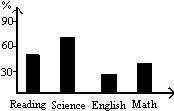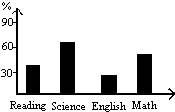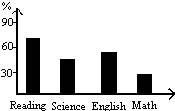题目内容
U.S. airlines are seeing a major interruption because of hundreds of flights canceled due to the ash cloud from the Icelandic volcano, but European flight companies will face the biggest losses.
The airline business has been tough: The decline dramatically slowed traffic; February heavy snow forced U.S. airlines to cancel thousands of flights; and now the ashes from the volcano stopped all traffic in and out of northern Europe for days.
"For U.S. flight companies, it'll be a relatively short-term hit," said Michael Boyd, president of Boyd Group International, an aviation (航空学) consulting firm. "We think right now they're down about $80 million in terms of lost income, and they're down domestically about 80,000 passengers that would have been flying domestically but aren't because they can't get here."
Delta announced that volcano-related interruption grounded about 400 flights until Monday at a cost of $20 million in lost revenues. But compare that to the recent snowstorms, when the airline canceled 7,000 flights and lost $65 million in revenue.
The disruption has created uncertainty for customers, but analysts say U.S. airlines won't face as many costs as you might think. They are not flying in extra planes to handle the passengers in trouble because, airline analyst Robert Mann said, companies simply don't have them.
"Airlines run a very lean operation now," Mann said. "So, since there are no spare aircraft or crews, the airlines will attempt to maximize loads on every one of their aircraft that do fly. But it may take days, or in some cases a week or so, to get some of these customers to where they want to go."
46. Which negative consequences mentioned in the passage did the disasters cause?
A. coldness, pollution and airlines’ losses
B. airport damage, pollution and slow traffic
C. passenger delay, coldness and airport damage
D. passenger delay, airlines’ losses and slow traffic
47. Which of the following statements is true according to the passage?
A. The fewest airplanes will fly the trapped passengers to their destinations.
B. All the customers are sure to be sent to their destinations in time.
C. The U.S. and U.K. airlines suffered the same losses in the natural disasters.
D. The volcano eruption reduced the traffic to and from northern Europe.
48. What does the last paragraph mainly tell us?
A. the troubles that the airlines will face after the ash cloud disappears
B. the measures that the airlines will take to maximize their profit
C. the present situation of the airlines and their plan to deliver the passengers
D. the reasons why the airlines run a fine operation
49. Why will it take a long time for airlines to send the passengers to their different destinations?
A. Because the passengers enjoy staying in airports to talk with one another.
B. Because the airlines don’t have spare planes or employees to serve.
C. Because the airlines don't have enough financial support after the disaster.
D. Because the passengers are asking for full refund from the airlines.
50. The passage is most probably from_______.
A.a novel B.a news report
C.a magazine D.a thesis
46—50 DACBB
略

练习册系列答案
相关题目
 .
. B.
B.
 D.
D.

 ard that his nose bled
ard that his nose bled he passage that the man__________.
he passage that the man__________.  T-shirt and then shouted, "Are they wet enough now?"
T-shirt and then shouted, "Are they wet enough now?" n the sports field.
n the sports field.